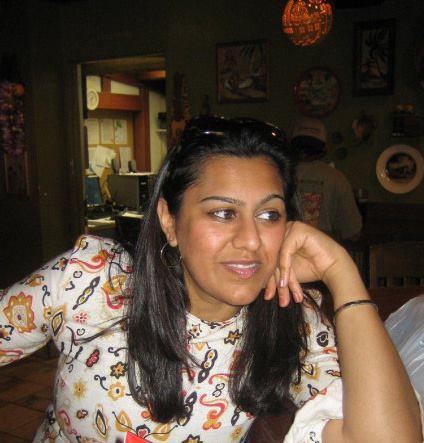Ashoke Ganguli: There is something I always wanted to ask you, but never had the courage. All those years ago, why did you say yes to me?
Ashima A. Ganguli: You were the best of the lot.
Ashoke Ganguli: Huh?
Ashima A. Ganguli: Better than the widower with four children or the cartoonist with one arm. I also liked your shoes.
Ashoke Ganguli: Oh. Oh, okay.
Ashima A. Ganguli: Hmm, you want me to say “I love you,” like the Americans.
These lines are from the movie, The Namesake, which I recently watched again. The dialogue resonated with me as I remembered the way my parents joked how they chose one another. As I ruminate on love and my own marriage, I feel compelled to share the love journey my parents embarked upon with their arrival to America six short months of getting married.
Their marriage was arranged, and it grew from acceptance and trust to love and admiration. In its final days, there was deep and profound gratitude. They spent thirty—two years getting to know one another in a foreign land where they became each other’s tower of strength.
This is a love story that needs telling.
Like many immigrant stories of the 70s, my parents came to New York City with high hopes and little money. Yet they feared not. They had hope and trust that in America, hard work and patience would result in a good job, upward mobility, and the American dream. They supported one another through rough times and never lost sight that the sacrifices they made would eventually pay off with a steady government job, a small townhouse to call their own, and trips abroad to visit family.
Despite the financial and physical struggles, the one thing that kept them focused and cohesive was their adherence to Islam. This held them steady through job losses, illnesses and the turbulence of parenthood. The Islam they observed was one that adhered to moderation. Love, generosity for family, relatives and neighbors comprised the core of their faith. They helped relatives in Pakistan get their daughters married. My parents provide for an orphaned nephew and put another relative’s children through school. They never wanted recognition. The Islam they represented didn’t feel oppressive. Occasionally my parents would chide me and my brother for not observing our five daily prayers, saying “humara farz tha batana, tumhari marzi agar parna” (it was our duty to tell you but it is up to you to read). Ultimately, they let us decide our religious compass. There was no compulsion of religion in our home. Rather, it was led by example.
My parents found communities that supported them and befriended God-loving people who became the de-facto family they so yearned for. They learned to love one another in spite of the hardships. Our community of friends and relatives came to support my mother as she paid her respects to my father one last time this past January as he succumbed to the many complications of diabetes. This was testament to the love and respect they held for one another.
Through the numerous hospitalizations over the past four years where my mother managed the role of caretaker and breadwinner, never once did I hear her complain. She heroically balanced work and doctors appointments, grocery shopping and pharmacy runs, dialysis trips and insulin inventory without protest. More importantly, she kept hope that my father would eventually regain health.
He made these sacrifices up to her by cooking every night, washing the dishes and queuing up her favorite dramas to watch after dinner. As they retired for the night , they would speak of eventually moving to be near the grandkids. There was a harmonious cadence in the days that my father felt well, and this gave my mother peace.
I am a child of immigrant parents, and I want to strike the right balance of Eastern and Western values enough so that I remain steadfast in celebrating my rich heritage, I also want to be mindful that this country, the country of my birth, infuses me, as well.
My husband came to America as a teenager. We neither share similar childhood cartoons nor agree on the proper way to say “vegetables”, but the unequivocal commitment we both uphold and want to pass on to our children is the appreciation of heritage and religion with America as our mutual reference point.
By teaching our children these values, we honor our parents who left everything behind and trusted in one another to forge new beginnings in America, making it stronger and better. So I am reminded as I sat down to share their story, that love is nurturing and understanding and knows no bounds of kindness and humility. This is the love my parents exhibited until the end of their union and one I hoped to cultivate in my own marriage.
This post is in honor of the author’s father, who passed away six months ago today.
—
Sadia Khan was born and raised in Brooklyn, New York and Washington, DC. She currently resides in Houston, Texas where she works as a Product Marketing Manager. When not working, she’s busy chasing after her two children, wishing her father could have enjoyed their naughty antics.












